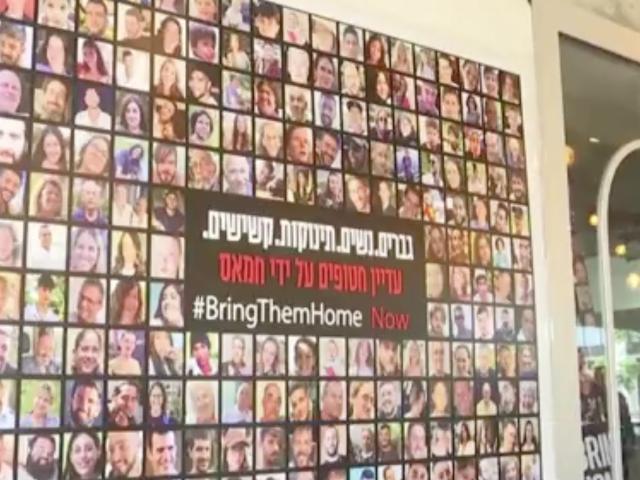Negotiations aimed at establishing a new ceasefire in Gaza are set to recommence on Tuesday, amidst ongoing military operations by Israel that have reportedly resulted in the deaths of numerous militants across the central and southern regions of the Gaza Strip. These talks, to be held in Cairo, will feature high-ranking representatives from the United States, Egypt, Israel, and Qatar, building upon prior discussions last month that proposed a cessation of hostilities. This previous proposal also included provisions for the release of hostages held by Hamas in Gaza.
Hamas, which the United States has designated as a terrorist organization, submitted a counter-offer to the initial proposal, which was not accepted by Israel. However, U.S. Secretary of State Antony Blinken has noted that despite the presence of unacceptable elements in Hamas's proposal, there remains a possibility for continued dialogue.
Mossad chief David Barnea will lead an Israeli delegation to talks on a potential hostage deal in Cairo tomorrow.
— Avi Mayer אבי מאיר (@AviMayer) February 12, 2024
Recall that Egypt notified Hamas that Israel will expand its military campaign to Rafah in two weeks if an agreement isn't reached.
It seems Hamas got the message.
The issue of hostages is particularly pressing, with Hamas believed to still hold approximately 100 individuals, following the release of a similar number during a ceasefire in November. The Israeli military has reported that 31 hostages have either died or were killed while in captivity.
The impetus for a renewed ceasefire is partly driven by growing international concern for the well-being of Palestinian civilians in Gaza, especially those in Rafah, near the Egyptian border. The conflict has forced over half of Gaza's population to seek refuge in Rafah, adhering to Israel's evacuation orders. This mass displacement has resulted in overcrowded conditions in U.N. shelters and makeshift tent cities, exacerbating the humanitarian crisis regarding access to essential services such as food, water, and medical care.
🔴 The US, Egypt, Israel and Qatar are expected to meet in Cairo today to work on a hostage deal between #Israel and #Hamas which would bring a six-week pause in the fighting.
— FRANCE 24 English (@France24_en) February 13, 2024
More with @cnorristrent 👇 pic.twitter.com/nBUPpiO6Qy
Recent Israeli airstrikes in Rafah, which, according to Hamas claimed at least 67 lives, have intensified fears of a potential ground operation by Israel in the area. U.N. human rights chief Volker Turk has expressed grave concern over the potential consequences of such an action, highlighting the dire humanitarian implications for Gaza, including the risk of starvation and famine facing thousands.
In a notable operation, Israel announced the rescue of two hostages, Fernando Simon Marman and Louis Har, both dual Israeli-Argentine citizens. Their rescue was part of Israel's response to an attack by Hamas on October 7, which resulted in 1,200 Israeli deaths and precipitated a widespread military counteroffensive by Israel.
CIA Director Bill Burns is heading to Cairo Tomorrow for further talks with Mossad chief, Shin Bet director & Qatari officials.
— Military Eye (@MilitaryEye) February 12, 2024
It’s said Hostages deal will be discussed. pic.twitter.com/bjkzdmSRbD
The conflict has taken a devastating toll, with Gaza health officials reporting over 28,400 Palestinian deaths and nearly 68,100 injuries. The Israeli military's operations have left vast swathes of the territory in ruins.
Israeli Prime Minister Benjamin Netanyahu has defended the military's actions, including the recent hostage rescue mission, and has dismissed international criticism of his plans for a ground assault aimed at eliminating Hamas battalions in Rafah. Netanyahu has promised "safe passage" for displaced individuals in Rafah, though details on their relocation remain unspecified.
Netanyahu Sends Delegation to Cairo Hostage Talks as Arm Wrestling with a Frustrated Biden Continues - @JewishPress - https://t.co/b6Ml7pA825 pic.twitter.com/Yf2RFtGuIN
— JewishPress.com (@JewishPress) February 13, 2024
The United Nations has voiced its opposition to any forced displacement of Palestinians from Rafah, emphasizing the need for adherence to international law and the protection of civilian lives. U.N. spokesman Stephane Dujarric stated the organization's refusal to facilitate such displacements, underscoring the lack of safe locations within Gaza amidst the ongoing conflict.


